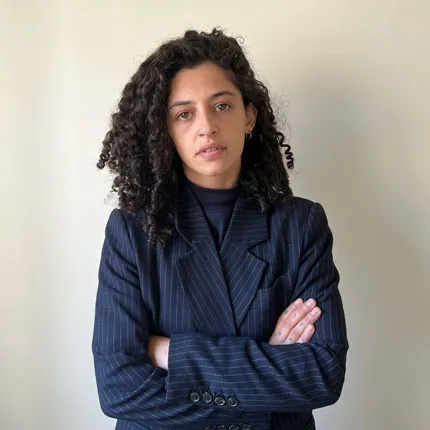
Dayna Ash is a cultural and social activist, writer, and the founder and Executive Director of Haven for Artists, an unapologetic feminist cultural organization working at the intersection of art and activism based in Beirut, Lebanon. Dayna was named one of the BBC’s 100 Most Inspirational Women in 2019, awarded by the Woman of Distinction Award in 2020 by the NGO Committee on the Status of Women, and Leader in LGBT Health Equity Award from the Lebanese Medical Association for Sexual Health in 2021 for advancing LGBTQI+ well being in Lebanon.
Who has shaped the way you show up today as an artist and/or activist?
Dayna: Many feminists, artists, and activists have charged and engaged my ability to interlock my art with activism, as it is impossible to separate art from the social and political realm of existence. My inspiration comes from writers such as bell hooks, Audre Lorde, Fatima Mernissi, Nawal El Saadawi, and Angela Davis, to name a few. They taught and enriched writing as a form of activism, to inform and expand the movements, inspire younger feminists, and create generational bridges of knowledge production and growth.
What is the power of connecting artists working at the intersection of arts and social movements across different geographies?
Transnational solidarity enables activists to not only find solidarity and representation in movement building and empowerment through intersectional movements and connectivity, but will also enable activists and artists to learn from another, access one another resources, information, and tools that can support and expand each’s ability to grow and further the fight for social and political justice.
How do you see art with relation to social change and movements, toward gender justice and decolonization?
I do not believe it is possible to separate arts from politics/activism. They’re informed by one another and are dependent on each other’s capacity and capabilities. A simplified example, is that one cannot call for a protest without writers that contribute to chants, and visual artists that contribute to posters and design. Artists have a direct responsibility to document the time and place they reside, and that is in a space that is heavily moved and dictated by the oppressive systems of the patriarchy and capitalism, to ignore them would be to ignore the reality of being.
